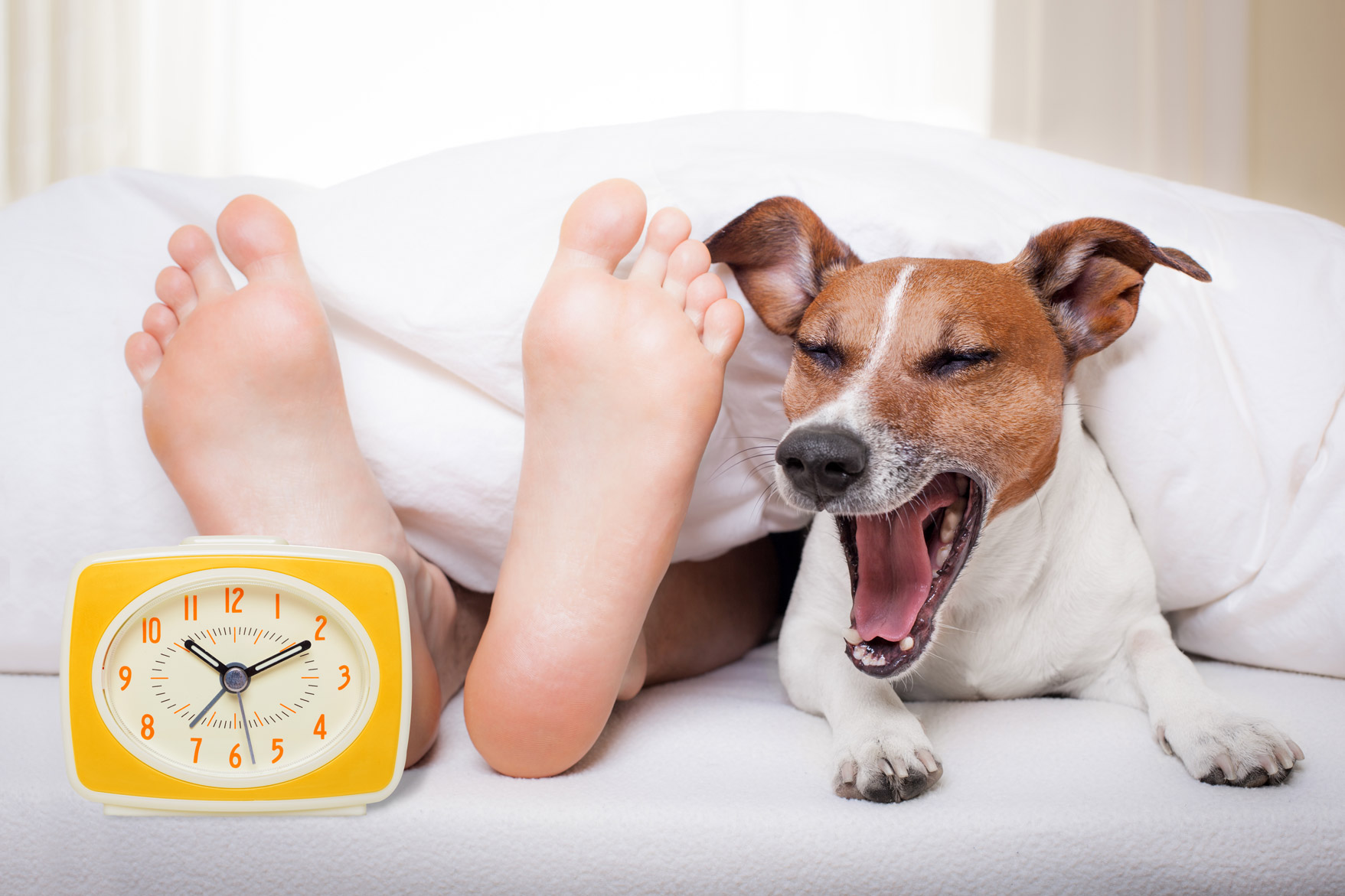Wait, What Time is it? It’s Daylight Saving Time – Again

It’s about time to set your clocks ahead one hour to “spring forward.” This Daylight Saving Time (DST) shift can be disruptive because most of us rely on sunlight and darkness as nature’s cues to wake up and fall asleep. The Earth’s 24-hour cycle contributes to our bodies’ internal clock, called the circadian rhythm.
When your sleep schedule is thrown off—even by just one hour—you may not feel tired enough to fall asleep at your regular bedtime, leaving you sleepy and mentally sluggish throughout the following day. This minor form of sleep deprivation might even be responsible for a temporary increase in heart attacks and accidents (on the road and at work) on the Monday after we reset our clocks for DST.
During daylight saving time, how can you get the sleep your body needs?
The healthy habits you should follow throughout the year are the same ones that will help you adjust to the time change. “It’s not so much about losing or gaining an hour of sleep, as it is an opportunity to remind people how important it is to maintain healthy behaviors all year long,” says Alexandre Abreu, M.D. A pulmonologist and sleep specialist, Dr. Abreu is director of the UHealth Sleep Center, part of the University of Miami Health System.
Routine is everything
Generally, a one-hour time change requires one day of adjustment. The transition is easier if you are a creature of habit. “Maintain your normal routine, including dinner and sleep schedules. Upon waking, open the curtains, eat a healthy breakfast and get exposed to bright light. Bright light is the main regulator of circadian rhythms that help reset your internal clock,” explains Dr. Abreu. Even if you feel sluggish or a bit tired at first, stick to a schedule, regardless of how early the sun rises or sets.
If tempted to nap during the day, follow Dr. Abreu’s guidelines. “If you have trouble falling or staying asleep at night, don’t nap. Otherwise, a short 30- to 60-minute nap in the early afternoon is fine.”
Healthy sleep hygiene
When it comes to getting a good night’s sleep, the same rules apply, regardless of the time change:
- Stay active throughout the day, getting outdoor exercise when possible.
- Get exposure to bright light or sunshine during the day.
- Maintain regular waking and bedtimes.
- Reduce caffeine consumption, especially after lunchtime.
- Limit alcohol consumption, and don’t drink alcohol close to bedtime.
- Allow time to wind down before bed with calming activities like reading, watching a movie, or spending time with family and pets.
Sleep stealers
Screen time—in front of computers, tablets, or cell phones—is a major sleep disruptor. “The intense brightness and close proximity to your eyes affects sleep.
“Avoid using electronic devices three to four hours before bedtime. If you must use your computer or cell phone at night, decrease the brightness as much as you can and try to keep it away from your face. If you have to work on a computer, use a smaller screen to minimize the effect of the light,” says Dr. Abreu. Many new phones, monitors, and tablets offer “night shift” and dark display modes that reduce the screen’s bright blue light.
Televisions do not pose as much of a problem. The light they generate is not as bright and we generally sit farther from the screen.
Parental sleep advisory
Because children need nine to ten hours of sleep, Dr. Abreu advises parents, “Treat the child as a child. Enforce a sleep schedule so they are well rested in the morning.” Whining aside, children need to wind down before bedtime. Remove the electronics and transition to quieter activities.
Although we know better, adults are just as likely as kids to push the boundaries of a healthy bedtime. “Human beings want an easy solution, like a pill, to help them sleep. Most of the time, the solution is within ourselves. It’s about realizing what we are doing wrong and how we can have a healthier lifestyle. That’s the key message,” says Dr. Abreu.
Written by Natasha Bright, contributing writer for UMiami Health News.
Tags: circadian rhythm, Daylight Saving Time, Dr. Alexandre Abreu, pulmonology, sleep medicine, UHealth Sleep Center
